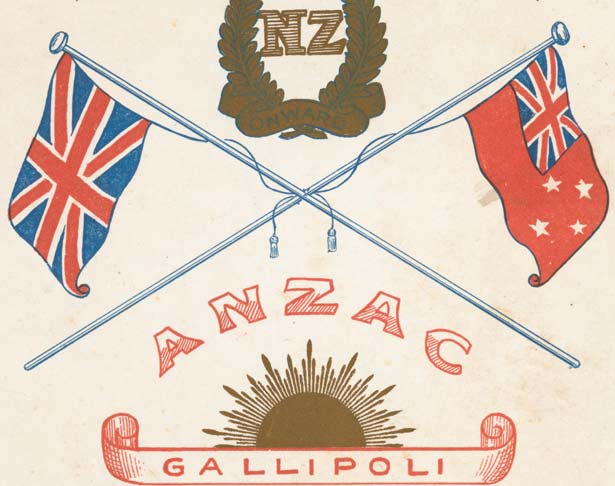Understanding Anzac Day: An Essential Guide for Parents
G’day, wonderful parents and caregivers! Anzac Day is not just another public holiday; it’s a poignant moment etched in Australia’s and New Zealand’s cultural identity. It’s a day where we remember the courage, mateship, and sacrifice of those who have served in armed conflicts, defending our cherished freedoms. But how do we translate such an important day into lessons and values for our little ones? Buckle up, because this friendly guide is all about illuminating the significance of Anzac Day for your family.
What is Anzac Day?
On the 25th of April each year, we commemorate Anzac Day to honor the members of the Australian and New Zealand Army Corps (ANZAC) who served in the Gallipoli campaign, their first engagement of World War I, and all Australians and New Zealanders who have served since. This day is marked by national remembrance, which gives us a golden opportunity to teach our children about the hardships and heroism of past generations.
The Dawn of Remembrance: Anzac Day Traditions
The crack of dawn holds a special significance on Anzac Day. Dawn services are held throughout both countries to reflect the time of the original Gallipoli landing. These services are peaceful, somber, and incredibly moving, offering a time to reflect on the enormous contributions and sacrifices made by soldiers.
Bringing your children to a local dawn service can be a powerful experience. It allows them to witness the collective power of memory and gratitude. You can prepare them by talking about why people gather before the sun rises and why this moment of silence is so profound.
Later in the day, commemorative marches and parades showcase veterans and their descendants wearing medals with pride. The stirring sounds of bagpipes, the solemnity of marching feet, and the community’s shared respect create a memorable scene that children are sure to absorb and understand on a deep level.
While Anzac Day can be somber, it’s also a day filled with stories of bravery, endurance, and the indomitable human spirit. Sharing stories of Anzac heroes, or even family stories if you have them, can instill a sense of history and belonging in your children. These narratives can foster pride in their country and the people who have shaped it.
Baking Anzac Biscuits: A Delicious Lesson in History
Lest we forget, no Anzac Day would be complete without the iconic Anzac biscuit. These sweet treats have a legend of their own, believed to have been sent by loving wives and mothers to their soldiers abroad because they kept well over long sea voyages.
Baking Anzac biscuits with your children is more than just a cooking lesson; it’s a way to connect with history. While measuring golden syrup and oats, you can share how each ingredient represents a part of the Anzac story. The durability of the biscuits is akin to the resilience of the ANZAC soldiers. This delicious activity is not just fun; it’s a subtle lesson in sacrifice, ingenuity, and love.
Whether attending dawn services, baking biscuits, or simply having a conversation over dinner, Anzac Day can take on a personal meaning for each family member. By bringing the spirit of Anzac into our homes and hearts, we ensure that the legacy of courage and camaraderie lives on in the next generation.
In this guide, we’ll explore further how Anzac Day can serve as a powerful educational tool for parents, focusing on age-appropriate ways to discuss wartime history, values such as courage and resilience, and the importance of peace. The understanding of such a significant day deepens our roots and sense of belonging in the vibrant tapestry that is Australia and New Zealand.
Stay with us as we delve deeper into the significance of Anzac Day and its place within our families and communities. We’ll look at crafts, books, activities, and thoughtful conversations that can help bridge the gap between past and present, ensuring that the spirit and stories of the ANZACs remain as relevant and illuminating as ever.

Five Things Parents Should Know in Preparing for Anzac Day
1. Understanding the Historical Context
It’s crucial for parents to first brush up on their own understanding of Anzac Day. Being well-informed allows you to answer questions that curious kids might have. Learn about the Gallipoli campaign and its impact, not just as a military event, but as a formative moment for the national consciousness of Australia and New Zealand.
2. Explaining the Significance to Children
Children absorb information like sponges, and the way parents explain Anzac Day can shape their perception. Frame the day as a time of respect and reflection. Focus on themes of courage and camaraderie rather than the stark realities of war, particularly for younger children. Explain that it’s a day when we express gratitude for the peace and freedoms we enjoy today, largely due to the sacrifices made by many brave individuals.
3. Participating in Community Events
Community events like dawn services, local parades, and ceremonies at war memorials are key to observing Anzac Day. Check the schedules for these events in advance and plan to attend with your children. Encourage them to wear red poppies as symbols of remembrance, and if you have relatives who were in the services, discuss their history and, if possible, involve them in family discussions, so the children can have personal connections to the day.
4. Planning Age-Appropriate Activities
Anzac Day is solemn, but it can also be engaging for children through appropriate activities. Younger children might participate in making poppy crafts or simple Anzac Day-themed artworks. Older children can be encouraged to write letters of thanks to veterans, or to read books and watch films (suitable for their age) about the Anzac spirit. Such hands-on activities help to make the concept of remembrance more tangible.
5. Involving Children in Traditions
Rituals and traditions provide a framework that children—and indeed, all of us—rely on to understand the world. Simple acts like attending a dawn service, holding a minute of silence at 11 am, or baking and sharing Anzac biscuits with neighbors can become cherished family traditions. These traditions foster a deeper understanding and appreciation for the values underpinning Anzac Day.
Embracing Anzac Day with our families not only pays respect to the past but also reinforces the values of bravery, resilience, and mateship in our children. It’s more than a historical lesson; it’s an ongoing expression of national identity and pride that can only be fully realized when shared through the generations. So, lovely parents, let’s equip our little Aussies and Kiwis with the knowledge and pride for Anzac Day that they deserve.
See more great Things to Do with Kids in New Zealand here. For more information see here
Disclaimer
The articles available via our website provide general information only and we strongly urge readers to exercise caution and conduct their own thorough research and fact-checking. The information presented should not be taken as absolute truth, and, to the maximum extent permitted by law, we will not be held liable for any inaccuracies or errors in the content. It is essential for individuals to independently verify and validate the information before making any decisions or taking any actions based on the articles.




